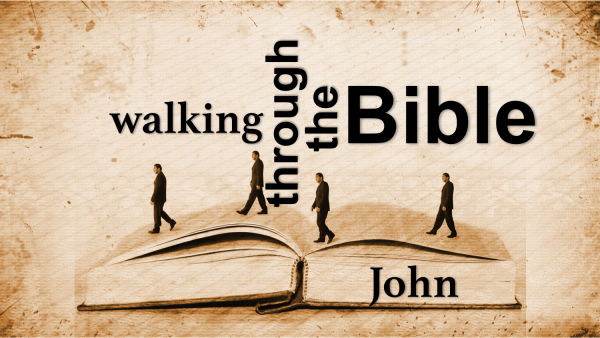While Matthew began Christ’s story at Abraham, Luke began it at Adam, and Mark began at the start of His ministry, John’s account went all the way back to eternity as he introduces Christ in the following manner:
“In the beginning was the Word, and the Word was with God, and the Word was God. The same was in the beginning with God. All things were made by him; and without him was not anything made that was made. In him was life; and the life was the light of men. And the light shineth in darkness; and the darkness comprehended it not…And the Word was made flesh, and dwelt among us, (and we beheld his glory, the glory as of the only begotten of the Father,) full of grace and truth” (John 1:1-5,14).
Some have tried in the past and present to, like the Gnostics of John’s day, deny the deity of Christ claiming the He was just a good man and outstanding teacher; but from the very outset, John’s account went about to prove that Jesus Christ did not have His beginning with His incarnation, but was Himself already present in the beginning of time, thus eternal. Upon the same undeniable truth does Christianity still rest.
Like each of the other accounts, especially Luke’s, John’s account contains much material unique to only itself. It has been recorded that over half of the book is not found in any of the other accounts. In addition
“John records for the most part events that took place in Judea, giving us the only account of Jesus’ early Judean ministry. In contrast to the Synoptics, he mentions very few incidents in Galilee. More than one half the space in John is given to the events and teachings of Christ during His last days on earth. John records Jesus’ longest prayer (ch. 17)” (Dunn).
Therefore a study of the New Testament that includes a study of but one of the accounts is an incomplete study. Each of the books must be considered in order to fully realize and appreciate the extent of Christ’s life and power.
Specifically, peculiar to John’s record are two accounts in which the number seven finds great significance. First, of the many miraculous works performed by Christ and recorded in each of the accounts, John’s record lists seven not mentioned anywhere else. Included among these are: (1) His first miracle of turning water to wine in Cana of Galilee (John 2:1-11); (2) His healing of the nobleman’s son (John 4:46-54); (3) His healing of the man at the pool of Bethseda (John 5:1-9); (4) His feeding of the five thousand (John 6:1-14); (5) this particular occasion in which He walked on water (John 6:19-21); His healing of the blind man (John 9:1-41); and (7) His raising of Lazarus from the dead (John 11:1-46). These miracles fulfilled John’s intended purpose for writing by proving Jesus’ power over nature, distance, time, sickness, and death.
Second, peculiar to John are seven statements Jesus made alluding to Himself by beginning them with the two words “I Am.” First, He stated “I am the bread of life” (John 6:35,48). Second, He stated, “I am the light of the world” (John 8:12). Third, He stated, “Except ye believe that I am” (John 8:24). Fourth, He stated, “Before Abraham was, I am” (John 8:58). Fifth, He stated, “I am the resurrection and the life” (John 11:25). Sixth, He stated, “I am the way, the truth, and the life” (John 14:6). And seventh, He stated, “I am the truth vine” (John 15:1).
Truly, the book of John is a marvel to read and a treasure from which all can learn. It gives hope to the world whereby man can live until that day when all things are unto them revealed, “for God so loved the world…” (John 3:16).

